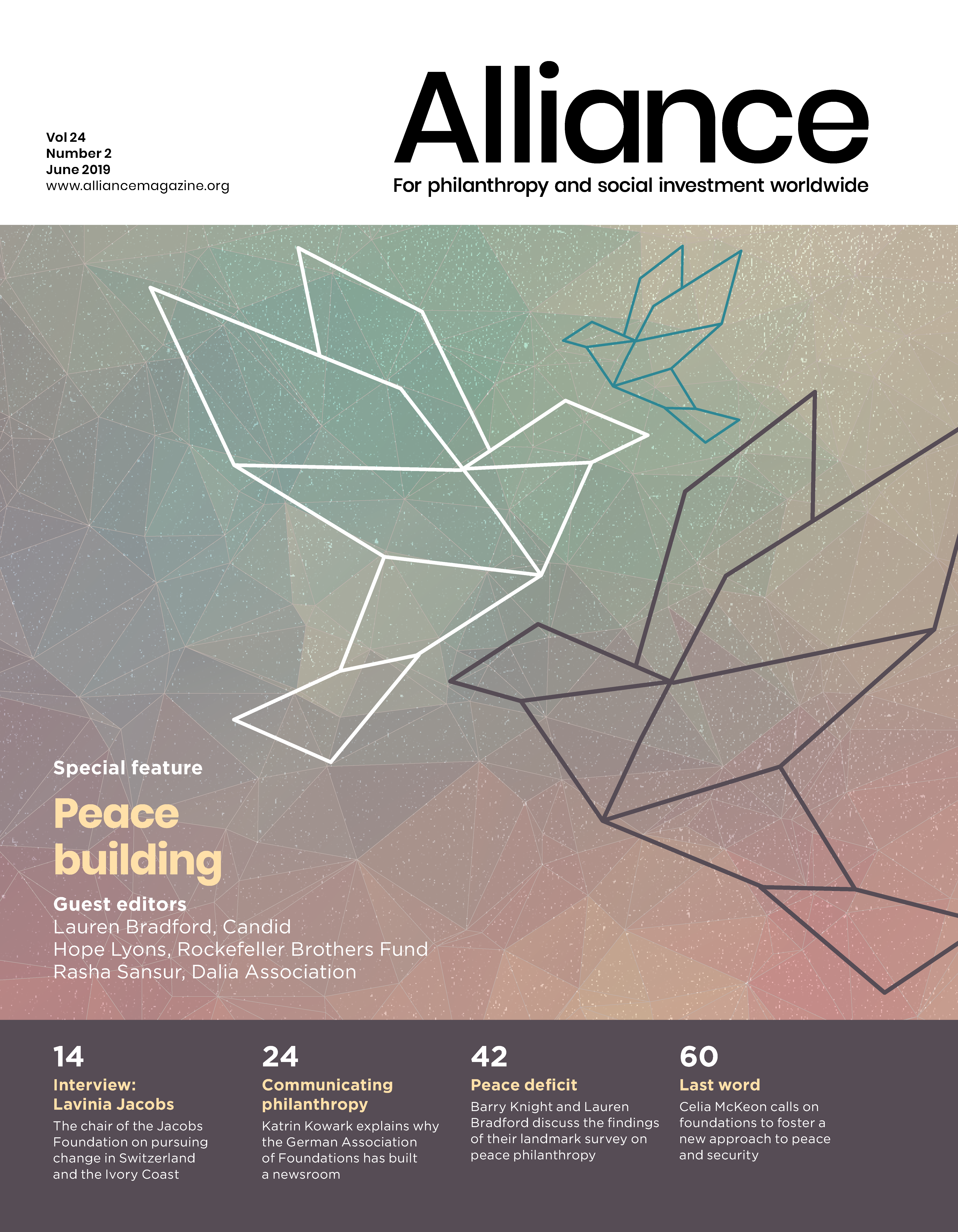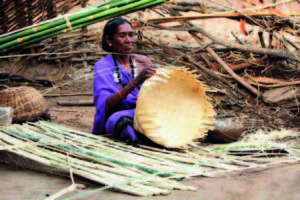The SDG Philanthropy Platform is helping to coordinate and strengthen the sector’s contribution to international peace-building
‘What gives philanthropy its attribute as a peacemaker is its aim to empower local communities and therefore facilitate a bottom-up peace-building process’ – Marcos Athias Neto, director, Finance Sector Hub, UNDP
Achievement of the UN’s Sustainable Development Goals (SDGs), which, among other things, specifically call for the creation of just and peaceful societies, will require the development of an inclusive global partnership across the spectrum of public and private actors. The philanthropic sector with its complementary approaches and new pools of funding, technical expertise, creativity and freedom to take greater risks, is uniquely positioned to play a critical role. In recognition of this, the United Nations Development Programme (UNDP) launched the Sustainable Development Goals Philanthropy Platform (SDGPP) in 2014, jointly with the Foundation Center and Rockefeller Philanthropy Advisors (RPA). This global initiative seeks to connect philanthropy with knowledge and networks to deepen collaboration, leverage resources and sustain impact. Below, we explore two examples of what the platform has so far contributed to the cause of peace and justice.
Promoting peace and sustainable development in Colombia
In Colombia, an accord was finally reached in 2016, bringing to an end the 30-year conflict between the government and the Revolutionary Armed Forces of Colombia (FARC). The philanthropic sector was well placed to take on a leadership role in the peace-building process: many philanthropic organisations already operated in the conflict-affected areas and have built trust with local communities, are willing to take risks and are politically neutral. Most importantly, philanthropic organisations can take the kind of long-term approach that peace-building requires.
Major achievements include improved environmental conditions, more active engagement of community leaders in training processes and education programmes, and increased citizen participation in the two target municipalities.
Supported by the Ford Foundation, the SDGPP has partnered with the Colombian Association of Family and Corporate Foundations (AFE Colombia) to produce a report on Peace and Sustainable Development in Colombia which provides concrete recommendations for philanthropic organisations to support Colombia’s transition towards peace.
Furthermore, 140 key stakeholders were convened in four Rural Development Tables to discuss the challenges and opportunities for Colombian foundations and other actors in the new rural context presented by the peace accords. These looked at ways of improving the living conditions of the rural population, increasing access to education for rural youth and diversifying income and employment opportunities beyond agriculture.
Finally, 17 local foundations are collaborating on the SDG-aligned regional development plan in Antioquia, one of the poorest regions of Colombia, affected by war. This joint initiative consists of three components:
- improving the health of the target communities through improved water infrastructure, access to drinking water and environmental awareness
- strengthening community-based organisations, reducing tensions and ensuring access throughout the educational cycle
- increasing income generation opportunities through delivery of technical and financial training.
Approximately 500 people (40 per cent of the population in the communities served) benefited directly from the initiative in 2018. Major achievements include improved environmental conditions (watershed cleaning, reforestation and waste management), more active engagement of community leaders in training processes and education programmes, and increased citizen participation in the two target municipalities.
Supporting indigenous communities in India
An estimated 250 million people live in and around forests in India, 100 million of whom are indigenous Adivasi or members of the tribal population. These traditional forest dwellers derive their livelihoods mainly from forest resources. However, their customary rights over forest land have been denied over decades because of the continuance of colonial forest laws in India, and they are often considered encroachers of the land on which they live.
The 2006 Forest Rights Act (FRA), which recognises community forest rights (CFR) – in theory at least – as well as the individual forest rights (IFR), provides for the restitution of forest rights. However, since its enactment, it has largely ignored both the gender dimension associated with land rights and CFR. These rights are especially important to the strengthening of local self-governance.
With the support of Oak Foundation, Avasant Foundation and Global Fund for Women, the SDGPP in India collaborated with the state government of Jharkhand to facilitate and strengthen the implementation of the FRA, with a strong focus on gender equality and CFR. Currently, the platform’s key activities in India are:
- Establishing district FRA cells to coordinate, monitor, facilitate trainings, manage data, source/generate maps, consolidate and maintain case records, and redress conflicts and grievances
- Developing district CFR atlases with information about villages potentially eligible for recognition of CFR in a district
- Developing an FRA management information system to upload real-time disaggregated data and also help the state and district administration to track the implementation of the Act
- Developing an FRA training resource kit for local-level institutions such as Gram Sabhas, forest rights committees and elected representatives; and relevant government functionaries
- Enhancing women’s access to information on the FRA
- Increasing women’s representation in the forest rights committees and in women’s collectives at the local level.
To date, 72 forest villages with tribal populations have been identified in the state of Jharkhand for the restitution of forest rights, including community rights over common property resources. In 2018, 54 new claims on CFR were submitted, covering 930 women in six districts, and with 91 potential female leaders identified for further collaboration.
Natalya Pyagay is programme officer for the SDG Philanthropy Platform/UNDP.
Email: natalya.pyagay@undp.org
Twitter: @PhilSDGs
Siebren Moltzen is research & communications intern for the SDG Philanthropy Platform.
Email: moltzen.siebren@gmail.com









Comments (0)